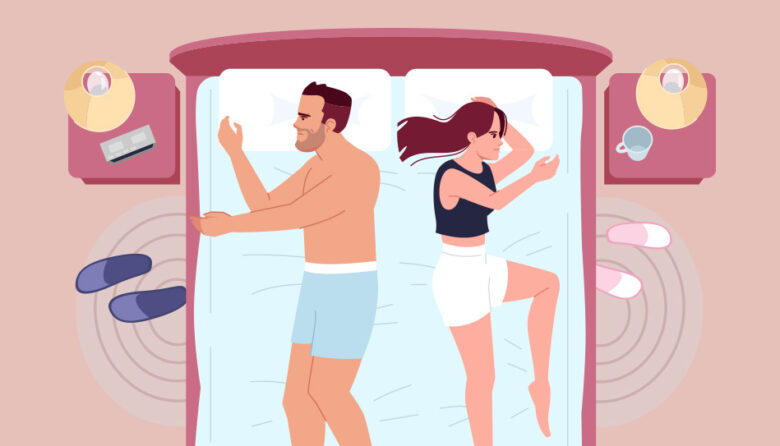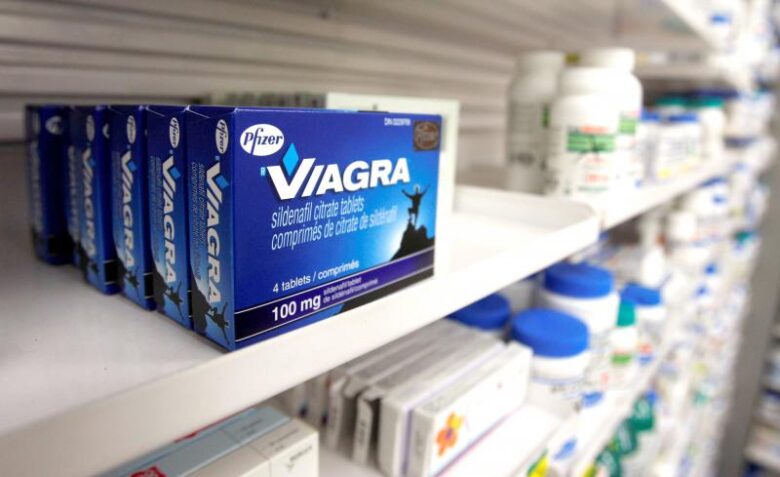Although everyone’s interest in sex fluctuates over their lifetime, some individuals suffer from HSDD (Hypoactive [low] Sexual Desire Disorder). Getting help with HSDD entails being treated for an extended lack of interest in sex (six months or more). This condition can often make usually sexually-active people feel sad, frustrated, and unfulfilled. Luckily, there are treatments both psychological, and medicinal: for example, Addyi is the FDA approved drug for getting help with HSDD. Let’s dive into the background of the condition.
HSDD is a psychological and physical condition that affects 10% of women across all age groups, as well as men. It expresses itself by decreasing an individual’s interest in sex, removing their desire to instigate or participate in it, as well as quashing their sexual fantasies. Additionally, if they do have sex, the act may cause displeasure for them.
The condition can be caused by a range of different factors, such as: a traumatic past event, the effects of medication, alcohol abuse, alterations in your hormones, another medical condition, poor self-esteem, or the dissolution of a relationship, to name a few.
Low libido in women is a very common issue and is achievable to overcome. It’s important to note while all healthy individuals will have days that they’re especially amorous, or conversely, days where a person is simply not in the mood for sexual activity, this normal day-to-day fluctuation in libido is a very different situation compared to an individual who is suffering from chronically low libido. The causes of ongoing low libido may at first be external, that is, related to environmental factors, including, for example, your sexual partner and how attracted you are to them, or factors related to your overall physical health. As an example, being undernourished or having an extremely low (or extremely high) body fat percentage can affect your hormone levels (in both men and women), which can contribute to sexual health problems. After considering or ruling out external confounding factors that may be contributing to the problem, then there are a number of internal possible causes, including emotional and psychological factors. If you are generally sexually attracted to people other than your primary or long term sexual partner, for example, the issue may not be a clear cut case of HSDD, for example.
However, once you have determined that you do have chronically low libido, fortunately, there exist a range of different treatment options you can choose from to get help with HSDD. Start by discussing your concerns with your doctor. Next, here are several routes you could take:

Source: blockerx.net
Contents
Attend counseling or therapy
Talking earnestly with a counselor can be highly beneficial to your mental health, as you have someone who can listen with understanding to your issues. They can guide you toward more positive associations with sex. Together, you can perceive issues and formulate a pragmatic improvement plan for the future.
Similarly, a psychotherapist can aid your discovery of your issues’ root cause. Through recognizing specific problems, you’ll be better equipped in planning how to deal with them. By observing your issues clearly, you may be able to begin mentally transcending HSDD, if the problem is psychological.
There is also sex therapy to consider. This can greatly assist in helping you become less uninhibited, more communicative about and more confident with sex. With the help of an experienced sex therapist, you’ll learn what you enjoy you and how you can nurture this to regain your interest. Likewise, in couples therapy, you’ll be able to identify together if something in your relationship is preventing you from enjoying sexual activity.
Take medication
For men, Sildenafil (Viagra) can be used, if erectile dysfunction is the issue.
For pre-menopausal women, currently the only treatment available for HSDD is Flibanserin (Addyi). In pill form, the drug stimulates a psychological desire for sex. Since its conception, it has been proven to increase libido and ease around sex in women from between 40-60%. It’s available to purchase online, as well as by prescription at a pharmacy.

Source: thearabweekly.com
Get help from your partner
If you are in a relationship, discuss your HSDD candidly with your partner, so that they can understand your problems and know how to help. You could propose experimenting with different varieties of sex together, to help you regain an interest in it. Perhaps suggest for them to surprise you to reignite your excitement.
If you feel apprehension around intercourse, talk to them about how they could gently reintroduce you to a sexual experience that is pleasurable and fulfilling for the both of you. Be honest about your needs and what works and doesn’t work for you. Is there a specific fear holding you back? How could your partner help you overcome this? Don’t be afraid to articulate your feelings to them so that you can create enjoyable sexual experiences together.
Improve your health
Sometimes, the causes of HSDD can be chemical. Activities such as consuming too much alcohol and smoking cigarettes have been linked to a decreased sex drive. You could try: introducing more healthy, nutrient-packed foods into your diet, exercising more often, cutting down on alcohol consumption and giving-up smoking. Find healthy dishes that you love and a sport or type of exercise you enjoy, adapting your lifestyle to accommodate them.
By improving your overall health, you may find that your old interest in and energy for sex returns. It isn’t the same for everybody, but this has correlated with the replenishment of sexual desire, as well as being beneficial for you in all areas.

Source: intimina.com
Change your relationship
Sometimes, low sexual desire can be due to not feeling attracted to the person you’re in a relationship with. Is this the case for you? In extreme situations, partners may be abusive, creating fearful emotions around sex. Or you may simply not be sexually attracted to your partner anymore, or you’ve evolved in to different people. Whatever the reason, it is perfectly acceptable to politely say when a relationship isn’t working for you.
When selecting a partner, look for a personality that you are attracted to and are comfortable with, a person who is supportive and excites you sexually. With a trusted partner, you may discover that they reinvigorate your interest in sex.
Get a hobby
Do something that makes you feel good about yourself, so that you can begin enjoying your own company. When you’re content in your own skin, it may lead to an increased libido. If you’re experiencing HSDD, you may find that you’re not interested in anything. However, there are many activities out there that you may enjoy, you just haven’t found them yet.
Try new things, be curious, experiment and find something that makes you feel happy, accomplished and content. When you have a hobby that you love, you’ll naturally feel more confident and this will show in your sexual encounters.

Source: intimina.com
Think about what turns you on
When you’re not interested in sex, it can be difficult to get aroused. However, it’s important to try to engage in activities that make you feel sexual desire. Fantasize about what turns you on and perhaps look at erotic material that gets you hot under the collar. Consider what kinds of sex you’d like to try. By doing this, you can gradually ease yourself back into a healthy sexual interest.
In conclusion, there is hope for individuals suffering from HSDD. With the right help and guidance, you can find a solution that works for you.
